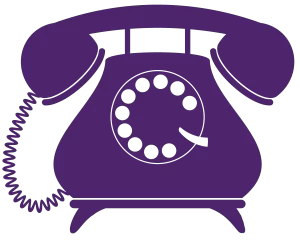Please feel free to call SARAH to discuss these resources and other options.
To return to the outline of resources press here
To return to the outline of Physical/ Sexual Health resources press here
Evidence Collection
An evidence collection kit is the process wherein DNA evidence is gathered at a hospital after an assault that can later be used for reporting if desired by the survivor. Another name for this service is a forensic exam. An advocate from the YWCA SART team is available to accompany individuals having a forensic exam. Individuals can decide if they would like a support person in the room with them. In addition, Kim Webb is available to accompany students (see Campus Resources ).
Preparing for an evidence collection kit:
- If possible, do not wash in any manner (i.e. do not wash hands or shower)
- Do not use the restroom (if necessary, go in a cup)
- Do not eat, drink, or brush your teeth
- If any of the above has already been done, it doesn’t necessarily prevent the collection of evidence, and you can still seek medical care
- Bring clothes, sheets, and other items that may be used for evidence (in a paper bag if possible, avoid plastic bags)
- Bring a change of clothes for leaving the hospital afterward, items that increase feelings of safety, and a phone charger
Intake/process of an evidence collection kit:
- You can opt-in or out of all pieces of the evidence collection kit – it’s up to your comfort level
- If you want an evidence collection kit, you will need to name your experience to the triage nurse (state they were sexually assaulted)
- Alternatives include writing this phrase down on the intake form or having someone else say it
- You can ask for a SART (sexual assault response team) volunteer to be called
- St. Mary’s, Barnes-Jewish, and SLU all have access to SART advocates and have SANE nurses on staff/on call
- If you choose to go through the whole process, it can take a long time (multiple hours)
- Police officers may come, but it is not necessary to speak to them
- The process is free, but follow-up medical care may not be
People undergoing an examination get to choose what types of care and evidence collection they receive. They are allowed to stop, pause, and skip any parts of the examination.
A breakdown of the evidence collection:
- Pelvic exam
- Sperm analysis
- Swabs from oral, rectal & vaginal tracts and anywhere else where semen/saliva may be present
- Thorough body examination for bruises, injuries, etc.
- Combing for the assailant’s hair
- Fingernail scrapings from under nail beds are collected
- The patient’s pubic & head hair is plucked for comparison of loose hairs (may be uncomfortable or painful)
- Photographs of injuries
- Blood test, if the patient indicates that they might have been drugged
- Emergency contraception may be administered
- STI prophylaxis may be administered
- A written report should be available to the patient
- Follow-up appointment set up to test for STIs, infections, or pregnancy
It is up to the person undergoing the examination to decide what types of care and evidence collection they would like to receive. While we listed different items that the exam offers, the survivor can choose to stop the process at any point or choose which parts to participate in.
Billing:
- RSVP center can help will billing advocacy so that emergency departments do not bill parents
- Habif is an alternative option for medical attention post-assault, as they do not bill anyone or any insurance but they cannot complete evidence collection kits
- Missouri covers evidence collection kits
Click here for detailed information on hospitals in the St. Louis area
